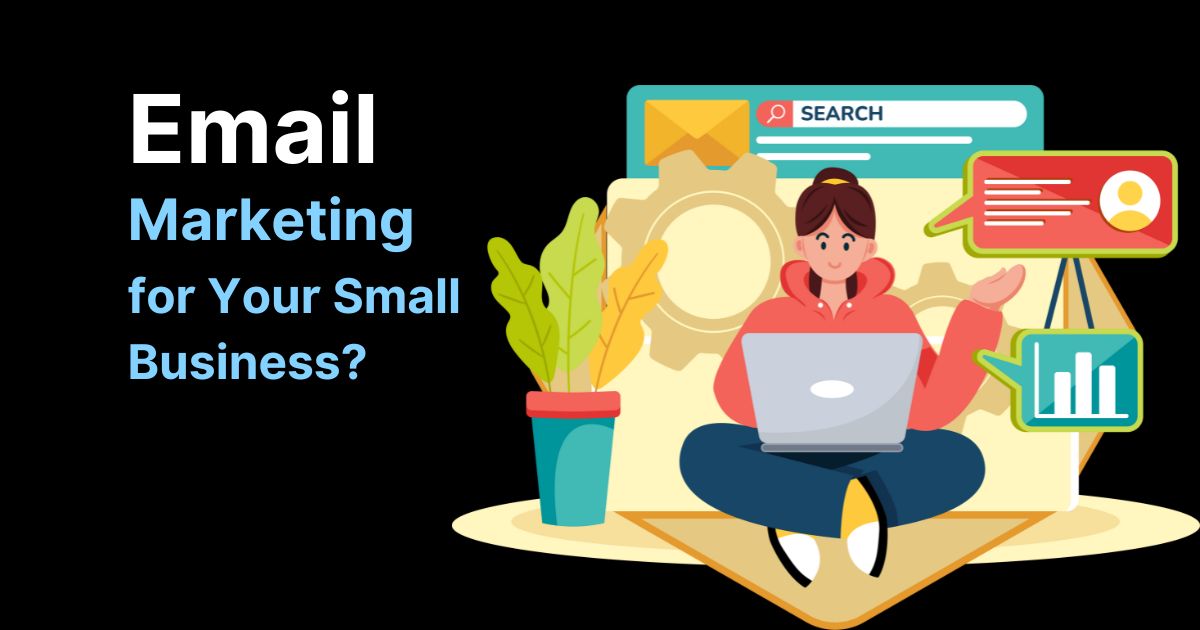
Small business owners face countless marketing decisions with limited time and budget. While social media and paid advertising often grab attention, email marketing quietly delivers some of the strongest returns in digital marketing. But is it right for your small business?
The answer depends on your goals, resources, and customer base. This guide examines the real benefits and challenges of email marketing for small businesses, helping you make an informed decision about whether to invest your precious time and money into building an email marketing strategy.
The Case for Email Marketing: Why Small Businesses Should Pay Attention
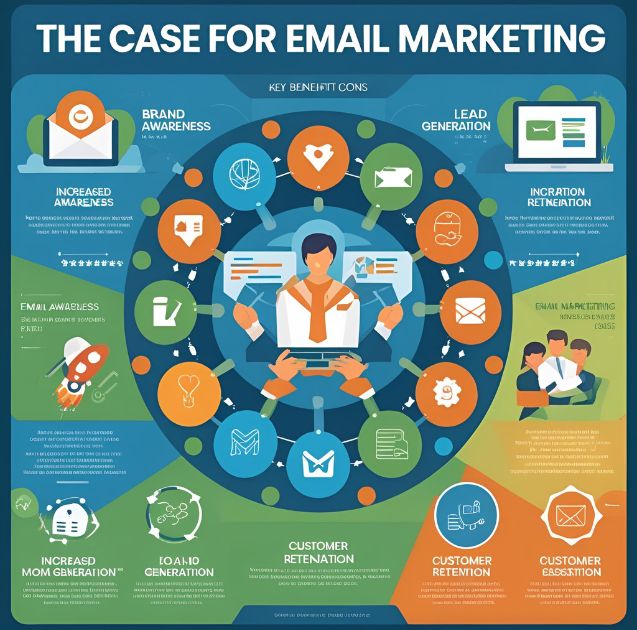
Direct Access to Your Customers
Email marketing gives you direct access to your customers’ inboxes—a privilege that social media platforms can’t guarantee. When you post on social media, algorithms determine who sees your content. With email marketing, you own the relationship and can reach subscribers whenever you choose.
This direct line of communication proves especially valuable for small businesses building customer loyalty. Your regular customers can hear about new products, special offers, and company updates without competing against algorithmic filters or paid advertisements.
Outstanding Return on Investment
Email marketing consistently delivers impressive returns for businesses of all sizes. Industry data shows an average ROI of $42 for every dollar spent on email marketing campaigns. Small businesses often see even higher returns because they can create more personalized, targeted campaigns.
The low cost of entry makes email marketing particularly attractive for small businesses. Most email marketing platforms charge based on subscriber count, starting at just $10-20 per month for small lists. This affordable pricing lets you test and refine your approach without major financial risk.
Building Long-Term Customer Relationships
Email marketing excels at nurturing customer relationships over time. Through regular newsletters, helpful content, and personalized offers, you can stay connected with customers between purchases and encourage repeat business.
Small businesses have a natural advantage here—your personal touch and authentic voice can create genuine connections that large corporations struggle to match. Customers appreciate hearing directly from business owners about new products, behind-the-scenes stories, and company milestones.
Measurable Results and Continuous Improvement
Email marketing provides clear, measurable results that help you understand what resonates with your audience. You can track open rates, click-through rates, conversions, and revenue generated from each campaign.
This data-driven approach lets you continuously improve your marketing efforts. You can test different subject lines, content formats, and sending times to optimize performance over time. Small businesses benefit from this feedback loop because you can quickly adapt based on what works.
Potential Challenges Small Businesses Face with Email Marketing
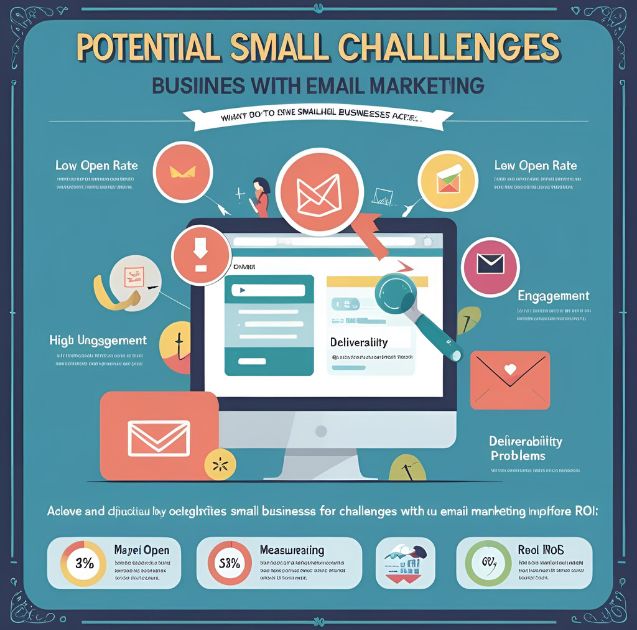
Time Investment Requirements
Email marketing requires consistent time investment to succeed. You need to create content, design campaigns, manage your subscriber list, and analyze results. Many small business owners underestimate the ongoing commitment required.
Building an effective email marketing program takes time to develop. You need to understand your audience, create valuable content, and establish sending schedules that work for both you and your subscribers. This learning curve can feel overwhelming when you’re already managing multiple business responsibilities.
Building Your Subscriber List
Starting with zero subscribers presents a significant challenge. Unlike social media, where you can potentially reach anyone, email marketing requires people to actively opt-in to receive your messages. Building a quality subscriber list takes time and strategic effort.
You’ll need to create compelling reasons for people to share their email addresses. This might involve offering valuable content, exclusive discounts, or useful resources. The process requires patience and consistent effort to grow your list organically.
Technical Learning Curve
Email marketing involves several technical aspects that can intimidate small business owners. You need to understand deliverability best practices, email design principles, and platform-specific features. Additionally, compliance with regulations like CAN-SPAM and GDPR requires attention to legal details.
Modern email marketing platforms have simplified many technical aspects, but you still need to learn how to create effective campaigns, set up automation workflows, and interpret performance data. This learning investment can feel daunting initially.
Maintaining Subscriber Engagement
Keeping subscribers engaged over time requires ongoing effort and creativity. You need to consistently provide value through your email content while balancing promotional messages with helpful information. Finding this balance challenges many small business owners.
Subscribers have high expectations for email content. They want relevant, timely information that helps them solve problems or achieve goals. Meeting these expectations requires understanding your audience deeply and creating content that genuinely serves their needs.
Is Email Marketing Right for Your Small Business?
Evaluate Your Customer Base
Consider how your customers prefer to communicate and receive information. If your target audience actively uses email and values regular updates from businesses, email marketing could be highly effective. However, if your customers primarily engage through other channels, you might need to focus your efforts elsewhere.
Think about your customer lifecycle and purchase frequency. Businesses with longer sales cycles or customers who make repeat purchases often benefit more from email marketing than those with one-time transactions or very short customer relationships.
Assess Your Content Creation Capabilities
Successful email marketing requires consistent, valuable content creation. Evaluate your ability to regularly produce newsletters, promotional emails, and automated sequences. If you enjoy writing and have expertise to share, email marketing might be a natural fit.
Consider whether you have stories to tell, tips to share, or insights that would interest your customers. Small businesses often have unique perspectives and personal experiences that can create compelling email content.
Consider Your Available Resources
Be realistic about the time and budget you can dedicate to email marketing. Starting small with simple campaigns is perfectly acceptable, but you need enough resources to maintain consistency. Sporadic email campaigns often perform poorly and can hurt your business reputation.
Factor in both the direct costs of email marketing platforms and the time investment required. Many small business owners find that starting with basic campaigns and gradually expanding works better than trying to implement complex strategies immediately.
Examine Your Business Goals
Email marketing excels at certain objectives more than others. If you want to increase customer retention, promote repeat purchases, or build brand awareness among existing customers, email marketing can be highly effective. For pure customer acquisition, other marketing channels might deliver faster results.
Consider how email marketing fits into your overall marketing strategy. It works best as part of an integrated approach that includes other marketing channels and customer touchpoints.
Getting Started: A Practical Approach for Small Businesses
Start Simple and Scale Gradually
Begin with basic email campaigns rather than complex automation sequences. Focus on creating a simple monthly newsletter or promotional emails for special offers. This approach lets you learn the basics without overwhelming yourself.
Choose an email marketing platform that grows with your business. Many platforms offer free tiers for small subscriber lists, letting you experiment without upfront costs. Popular options for small businesses include Mailchimp, Constant Contact, and ConvertKit.
Focus on List Building from Day One
Implement simple strategies to collect email addresses from your existing customers and website visitors. Add signup forms to your website, include email collection in your checkout process, and mention your newsletter in face-to-face interactions.
Create a simple lead magnet—a valuable resource you offer in exchange for email addresses. This could be a helpful guide, exclusive discount, or access to special content. The key is offering something your target audience genuinely wants.
Develop a Sustainable Content Strategy
Plan content that you can realistically create and maintain. This might mean monthly newsletters rather than weekly emails, or simple text-based emails rather than complex designed campaigns. Consistency matters more than perfection when you’re starting out.
Share content that showcases your expertise and provides value to customers. This could include industry tips, behind-the-scenes stories, customer spotlights, or educational content related to your products or services.
Measure and Improve Over Time
Track basic metrics like open rates, click-through rates, and unsubscribe rates to understand how your audience responds to different content and approaches. Use this data to refine your strategy over time.
Don’t expect immediate results. Email marketing typically requires several months of consistent effort to show significant impact. Focus on building relationships and providing value rather than immediate sales results.
Making Your Decision: Key Questions to Ask
Before committing to email marketing, ask yourself these essential questions:
Do you have customers who would benefit from regular communication about your business? If your customers make repeat purchases, value industry insights, or appreciate updates about your business, email marketing could be valuable.
Can you commit to consistent content creation and campaign management? Email marketing requires ongoing effort to succeed. Sporadic campaigns often perform poorly and can damage your reputation.
Do you have a way to collect email addresses from interested customers? Without a strategy for building your subscriber list, your email marketing efforts will struggle to gain traction.
Are you prepared to learn new skills and adapt your approach based on results? Email marketing success comes from testing, learning, and improving over time.
Your Next Steps Forward
Email marketing can be a powerful tool for small businesses, but success requires realistic expectations and consistent effort. The low cost of entry and potential for high returns make it worth considering for most small businesses, especially those with repeat customers or longer sales cycles.
If you decide to move forward, start small and focus on building sustainable habits rather than complex campaigns. Choose a user-friendly email marketing platform, create simple content you can maintain consistently, and focus on providing value to your subscribers.
Remember that email marketing works best as part of a broader marketing strategy. It excels at nurturing existing relationships and encouraging repeat business, but you’ll likely need other marketing channels for customer acquisition and brand awareness.
The decision ultimately depends on your specific business situation, customer base, and available resources. Consider starting with a small test campaign to see how your audience responds before making a larger commitment to email marketing.



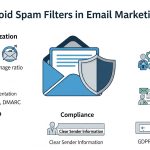


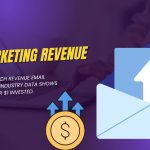
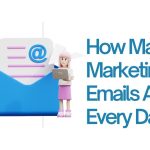
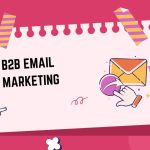






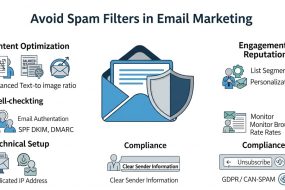
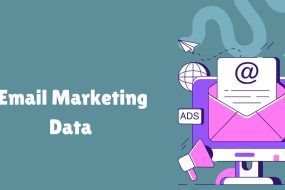
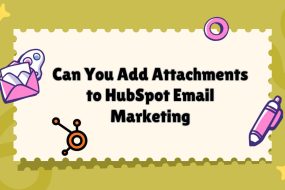
No Comments